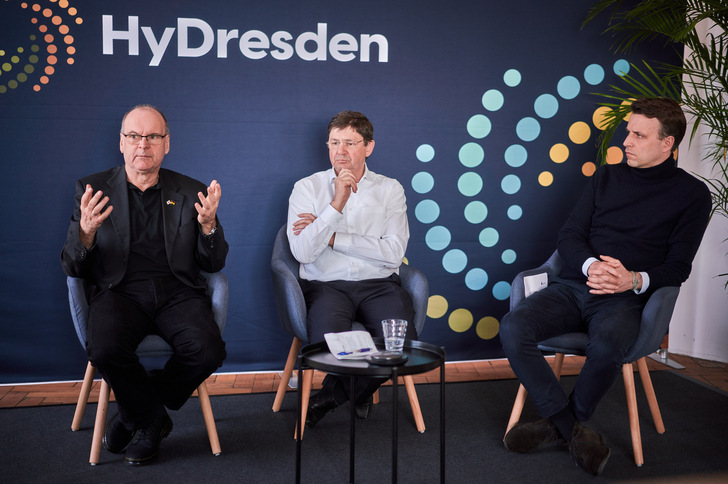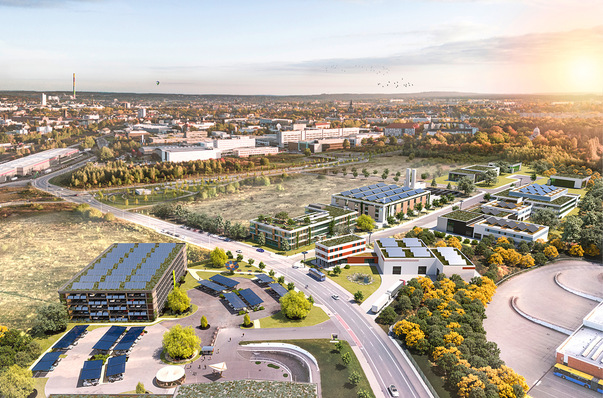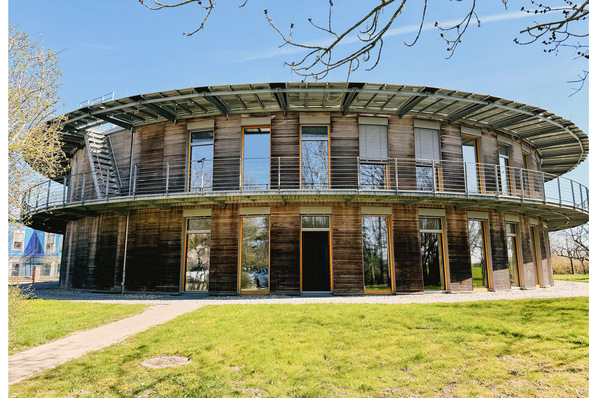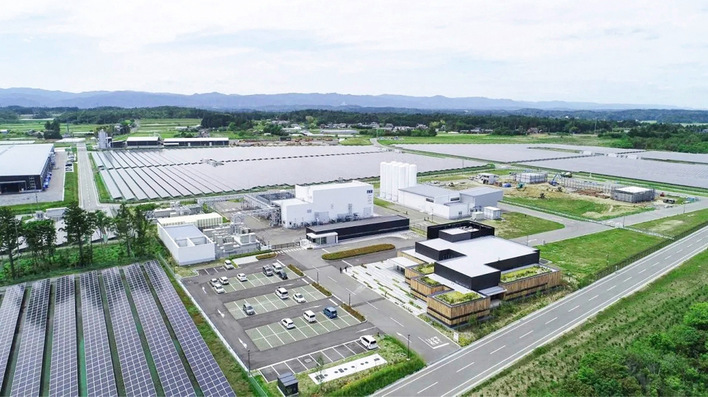One year after its founding, representatives of the initiative met for a strategic dialogue to discuss current developments in the hydrogen economy. The Dresden-based stakeholders have already scaled up AEL and SOEC technologies to a level that enables their deployment in numerous projects with German and European industrial partners.
The initiative demands that the Integrated Climate and Transformation Fund (KTF), which is to be endowed with €100 billion, prioritize the development of industrial electrolysis capacity in Germany. By 2030, at least ten gigawatts of electrolysis capacity are to be installed—a target that has been politically agreed upon but is not yet financially secured.
"Green hydrogen will shape German industry in the long term—it is a key enabler for a climate-neutral and competitive economy. Dresden is at the heart of European hydrogen expertise, with research institutions, networks, and innovative companies actively driving the transition," emphasizes Nils Aldag, CEO of Sunfire.
Professor Alexander Michaelis of Fraunhofer IKTS adds: "Hydrogen can become the backbone of a resilient and high-performing industrial base—if we build value chains in Europe instead of relying on short-term solutions. This requires clear political signals and stable framework conditions for research, development, and industrial deployment."
The three partners contribute complementary expertise to the initiative: Linde Engineering is advancing infrastructure development, Sunfire supplies industrial-scale electrolyzers, and Fraunhofer IKTS develops systems and processes for more efficient hydrogen production and utilization.
"Without a well-designed infrastructure, the potential of hydrogen will remain untapped. Grid and storage capacities must keep pace with production to ensure the long-term economic viability of the technology," says Dr. Reinhart Vogel, Managing Director of Linde Engineering Dresden.
The initiative identifies industrial demand stimulation as a key factor for scaling up the hydrogen economy. In sectors such as refineries and the chemical industry, targeted mandates for the use of green hydrogen could generate short-term market momentum—without the need for new subsidies. A binding green gas quota or regulatory incentives for the deployment of electrolyzers would accelerate investment decisions.
Studies show that building a hydrogen economy in Germany could create around 71,000 new jobs by 2030—approximately 10,000 of them in Central Germany alone. HyDresden therefore calls for an industrial policy that consistently promotes European value creation, ensures planning certainty, and sends clear investment signals.
In addition to political framework conditions, the initiative emphasizes the importance of skilled labor. A central pillar of HyDresden is therefore to attract and train professionals for the hydrogen sector. "Technological sovereignty requires people who make it possible," says Michaelis.






